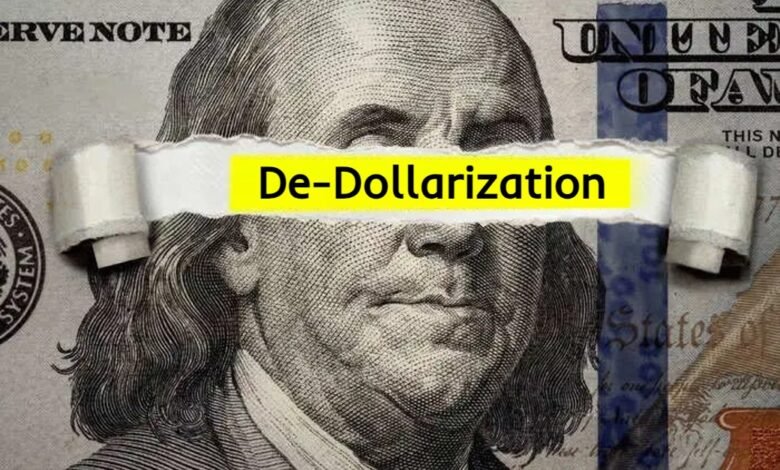BRICS Alternative To SWIFT Can Dethrone US Dollar

The BRICS alliance is working towards the creation of an alternative payment system for the US and the Western-dominated SWIFT. The system is currently under work and more details about its development could be revealed in the next summit in October. The US dollar will not be integrated into the SWIFT alternative payment system of BRICS.
Also Read: BRICS: 2 New Countries Express Interest To Join the Alliance
The main motto of BRICS is to dethrone the US dollar and make local currencies the de facto global currency. Read here to know how many sectors in the US will be affected if BRICS ditches the dollar for trade.
BRICS: SWIFT Alternative Could Uproot US Dollar’s Hegemony


Russia’s Central Bank Governor Elvira Nabiullina confirmed that the BRICS alternative to SWIFT is currently under work. Additionally, she revealed that the sanctions pressed by the US and Western allies are the reason why they plan to launch an alternative payment system to SWIFT.
Also Read: BRICS: China Makes Major Financial Announcement
The Governor stressed that the US will have no political or financial power to press sanctions once the alternative payment system is out. “A big portion of the world is always under threat of US or European sanctions. And it’s in their interest to create an alternative system. The initial promise or purpose of SWIFT wasn’t to be used in the sanctions system, and they changed the rules.”
She added, “My sense is that an (BRICS) alternative to SWIFT would have happened a long time ago if it had been weaponized. We are holding discussions on the interaction of such platforms. But here the interest and technical readiness of our partners are important,” she said.
Also Read: India Ditches BRICS Again, Halts Russian Oil Tanker To Buy US Oil
Moreover, if the BRICS alternative to SWIFT is extensively used, the US dollar will find no place in all transactions. This puts the US dollar on the back foot and gives strength to BRICS countries and their local currencies and native economies.
Source link





